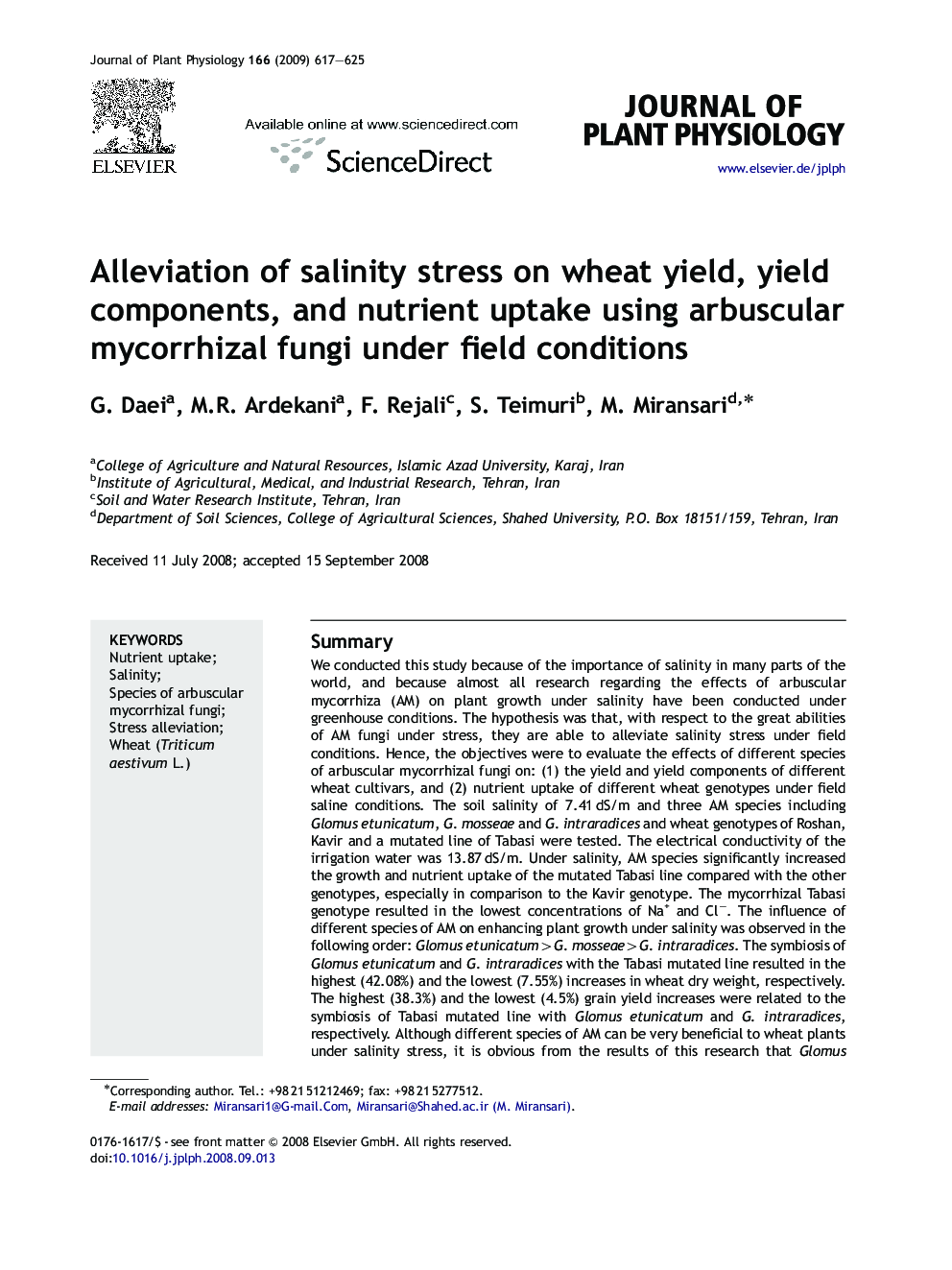| کد مقاله | کد نشریه | سال انتشار | مقاله انگلیسی | نسخه تمام متن |
|---|---|---|---|---|
| 2057306 | 1075875 | 2009 | 9 صفحه PDF | دانلود رایگان |

SummaryWe conducted this study because of the importance of salinity in many parts of the world, and because almost all research regarding the effects of arbuscular mycorrhiza (AM) on plant growth under salinity have been conducted under greenhouse conditions. The hypothesis was that, with respect to the great abilities of AM fungi under stress, they are able to alleviate salinity stress under field conditions. Hence, the objectives were to evaluate the effects of different species of arbuscular mycorrhizal fungi on: (1) the yield and yield components of different wheat cultivars, and (2) nutrient uptake of different wheat genotypes under field saline conditions. The soil salinity of 7.41 dS/m and three AM species including Glomus etunicatum, G. mosseae and G. intraradices and wheat genotypes of Roshan, Kavir and a mutated line of Tabasi were tested. The electrical conductivity of the irrigation water was 13.87 dS/m. Under salinity, AM species significantly increased the growth and nutrient uptake of the mutated Tabasi line compared with the other genotypes, especially in comparison to the Kavir genotype. The mycorrhizal Tabasi genotype resulted in the lowest concentrations of Na+ and Cl−. The influence of different species of AM on enhancing plant growth under salinity was observed in the following order: Glomus etunicatum>G. mosseae>G. intraradices. The symbiosis of Glomus etunicatum and G. intraradices with the Tabasi mutated line resulted in the highest (42.08%) and the lowest (7.55%) increases in wheat dry weight, respectively. The highest (38.3%) and the lowest (4.5%) grain yield increases were related to the symbiosis of Tabasi mutated line with Glomus etunicatum and G. intraradices, respectively. Although different species of AM can be very beneficial to wheat plants under salinity stress, it is obvious from the results of this research that Glomus etunicatum can perform more efficiently under such conditions compared with other AM species. This indicates the great importance of selecting the right combination of AM species and host plant to make cultivation under salinity even more likely.
Journal: Journal of Plant Physiology - Volume 166, Issue 6, 1 April 2009, Pages 617–625